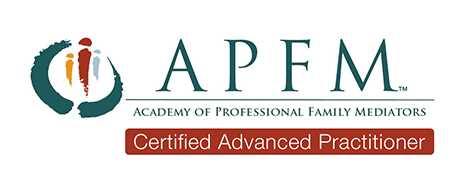“If people knew how hard it was to get divorced, they probably wouldn’t get married,” noted John.
Eight weeks earlier John had wandered into the office asking for assistance with his divorce. “We’ve got it all figured out,” he said. “We just need someone to put it on paper.”
“Putting it on paper” required far more effort than John anticipated. More than simply signing a piece of paper, the divorce process encompasses many steps. Each with its own purpose and effect. Understanding these steps helps couples prepare for the process and ensures they are protected along the way.
Filing–
In Indiana. divorces begin with filing a Petition for Dissolution. Couples may also file waivers of venue and and waivers of service–when needed. If couples decide to represent themselves (i.e. to not hire an attorney), they also file a pro se appearance form.
Early Court action–
If couple’s situation warrants, and at one party’s request, the Court can set a hearing to organize immediate living parameters–such as temporary parenting arrangements, child support, financial obligations. All these can be altered in the final divorce agreement.
If couples can come to these decisions on their own, no hearing is needed.
Options for addressing issues–
Most couples seeking divorce have no idea of all the issues to address, the options available, or the consequences of each option. Qualified professionals offer education on all these. These professionals include:
Mediation–Mediators work with both husband and wife to create a mutual agreement. The mediator helps couples:
- define the issues particular to their situation,
- understand the variety of options available to address the issues,
- understand the benefits and costs of each option,
- work through the options to select the best path for both party’s future security and stability, and
- create a final agreement to file with the Court.
Though often attorneys, mediators cannot offer legal advice–only education. More, attorney/mediators cannot represent either party. Couples who require legal advice can still use mediation. Their attorney simply steps into a more advisory role rather than a traditional litigation role.
Mediation offers the protection of the legal system in a forum that also protects the couple’s ability to work together in the future–whether as parents, as co-owners of a family business, or just as members of each other’s extended family. Mediation resolves the legal issues while protecting the relationships.
Litigation–Litigators enter an adversarial process to address the issues in divorce. Each person hires their own attorney. The attorney offers both legal education and legal advice about the strategies available to gain the best outcome for their client – financially, in parenting, and in other related issues.
The attorney owes an ethical obligation to seek the best outcome for his/her client. Which sounds good. Until each person realizes that often means–at the expense of the other or the children.
The battle for supremacy pits former spouses (parents) against each other–whether they want to be adversaries or not. The process offers individual protection. But, often at the expense of former spouses being able to effectively work together in the future–especially in parenting.
Generally, cases are resolved between the representing attorneys. The decisions are captured in a legally enforceable agreement which is filed with the Court.
When the issues cannot be resolved between the attorneys, the case is tried in court. The judge rules on the pending issues and issues an order that divides assets, assigns parenting time, and resolves any other issues.
Outcome–
Once an agreement is filed and accepted by the Court, it governs the conduct of the parties. The agreement can only be changed by seeking a change through the Court. And some issues can never be altered.
Property settlements–once entered by the Court–cannot be changed. The Court has no power to modify its order absent an agreement of the parties. even despite severe extenuating circumstances. Therefore, individuals do well to know all the implications of a settlement arrangement before signing.
Case in point. Jerry didn’t want to invade his pension plan to give his wife her portion. Instead, he agreed to monthly payments for an extended period of time. As an emergency room physician this seemed more economically feasible and personally palatable. Until his stroke.
His new wife sought a change in the property settlement to alleviate the substantial financial burden of the payments now that Jerry couldn’t work. The judge had no ability to offer relief. The property settlement was final.
Other decisions can be modified, i.e. child support, parenting time, and decisions regarding children’s education must adjust as children enter different phases or life situations change. Yet, parents cannot arbitrarily make changes. Any new agreement, to be enforceable, must be entered by the judge.
This offers a brief overview of the divorce process. If you are considering divorce, please seek complete information from a qualified professional. At The Resolution Center we offer free initial consultations where we seek to understand your individual situation and offer options for how we might serve you. Should you need services beyond what we provide, we have a list of trustworthy professionals to serve you. If you would like more information, please email info@TheResolutionCenterIndy.com or call 317-344-9740.





